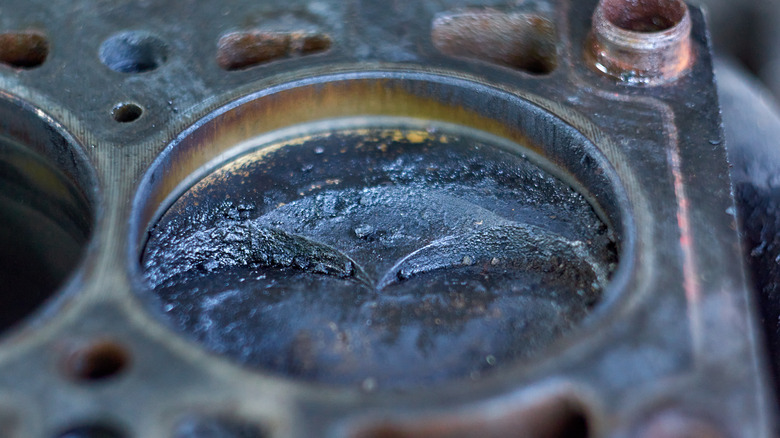
Megaflopp/Getty Images
Engine knocking can result from one of several issues involving your engine. Whatever is causing it, it must be dealt with immediately so it doesn’t become any worse. The knocking is a warning sign that there could be (or already is) a serious engine repair in your future.
Advertisement
The three primary causes of engine knocking are improper combustion timing, connecting rod or rod bearing failure, and accessory belt tensioner or pulley failure. While knocking is no longer as widespread a problem thanks to the current state of anti-knock sensor technology, it can be an issue for vehicles with gasoline direct-injection engines. And I know knocking: I’ve correctly diagnosed knocking-related problems for several friends and relatives, referring them to qualified mechanics when their issues could not be easily remedied, and I’ve written extensively on a wide variety of auto-repair-related issues for Repairpal.com.
The most common knocking sound comes from an engine that has improper combustion timing. This means that the air-fuel mixture in one or more cylinders is igniting early or in more than one place at a time.
Advertisement
Another type of knocking is the result of worn connecting rod bearings, which produce a sound known as «rod knock.» This is one of the worst sounds your car can make.
Finally, the third source of a knocking-type noise can be the engine’s accessory belt, which is routed through several pulleys located on the front of the engine.
How do you fix engine knocking?

Aleks198/Shutterstock
If incomplete combustion timing is causing your engine knocking, the solution can be as simple as switching to higher-octane gasoline. Your engine may need premium fuel and be unable to compensate for regular gas (today’s anti-knock sensor technology lets many engines run on any gasoline grade, but the sensor could be bad). Check your owner’s manual and if required, fill it with premium to see whether the knocking sound goes away. If not, consult a mechanic.
Advertisement
A more serious combustion-related problem is the buildup of carbon deposits within the cylinders, effectively raising your engine’s compression ratio and causing a knocking sound. This can be a problem in today’s gasoline direct-injection (GDi) engines and engines run on poor-quality fuel. The solution is to remove the deposits, which can be done either by you or by a mechanic. Using top-tier fuel and getting regular synthetic oil changes should minimize the buildup. This is part of what you need to do to keep your motor running long-term.
A really serious problem is «rod knock,» which indicates that your engine’s connecting rods and their bearings have worn to the point where the noise produced is noticeable. This is definitely a job for a mechanic and likely indicates major engine damage.
Advertisement
A knocking noise can also be caused by a bad accessory belt, belt tensioner, or pulley. These are located on the outside of the engine and are fairly easy and relatively inexpensive repairs for an experienced mechanic.